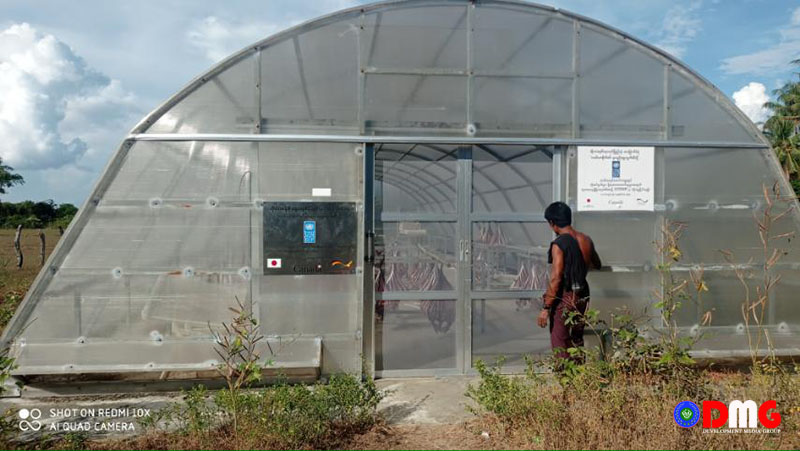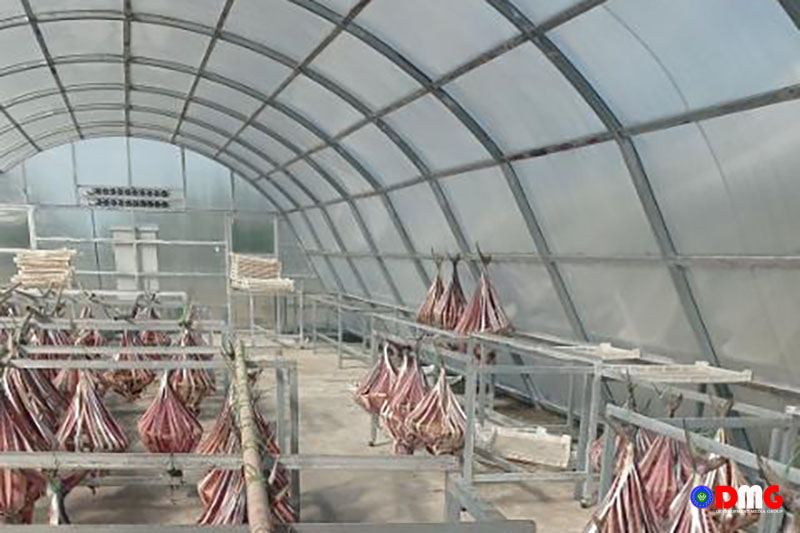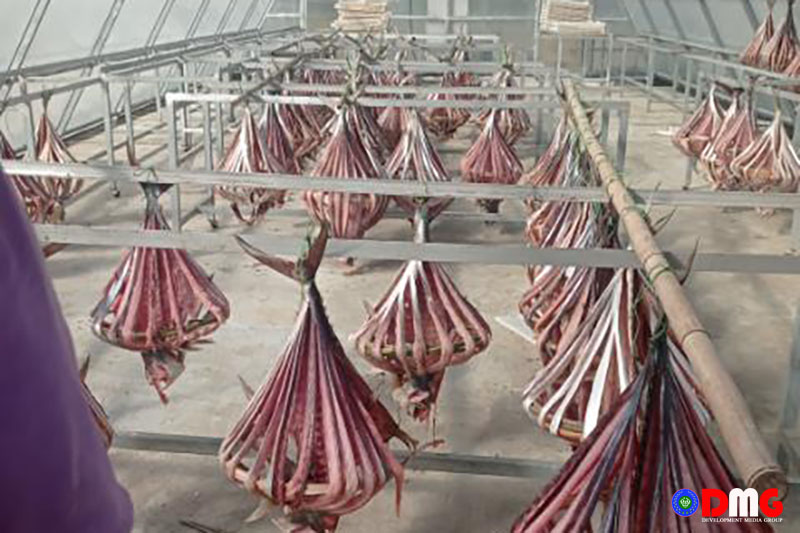- Weekly Highlights from Arakan State (Jan 26 to Feb 1, 2026)
- Arakanese youth stabbed in Mae Sot urgently needs financial aid for medical treatment
- Five years on Myanmar faces uncertain military and political outlook after coup
- Myanmar Navy detains Pauktaw fishermen and demands ransom
- Junta Airstrikes on Arakan and the Consequences for Independent Media
Solar-powered fish drying enterprise in Pauktaw Twsp struggles to find buyers in nascent days
A dried fish manufacturing collective in Chaungwa Village, part of Arakan State’s Pauktaw Township, that uses solar energy to dry fish is struggling due to lack of market, according to villagers.
20 Dec 2022

DMG Newsroom
20 December 2022, Sittwe
A dried fish manufacturing collective in Chaungwa Village, part of Arakan State’s Pauktaw Township, that uses solar energy to dry fish is struggling due to lack of market, according to villagers.
The facility, in which fish is dried with heat produced by solar power, was set up with technical and financial assistance from the United Nations Development Programme (UNDP), and operations began in October. It is run by a collective of around 40 business owners and workers.
“It is an enclosed facility with solar panels on the roof. And there are fans inside. Sunlight does not directly hit the fish. The solar power produces heat that dries up the fish. We are struggling because the demand from Sittwe is low,” said U Oo Sein Tun, who is in charge of the facility.

The UNDP has set up the facility so that villagers can make a living on the production and sale of dried fish year-round, he said.
“It is now OK to dry fish in the rainy season. When we dry fish under the sun, the fish can be contaminated by particles carried by wind. There might be flies and sand. Flies can’t come to our existing facility, which also has equipment to absorb fish odours. So, it is clean,” he added.
Fish caught in Pauktaw are dried at the facility in Chaungwa and are mainly sold to Sittwe.

“We can get raw fish any time. But there is low demand for dried fish from Sittwe. We started this business only recently. And there are also labour costs,” said U Kyaw Naing, a dried fish business owner from Chaungwa.
Less than 200 viss of dried fish produced at the facility are sold to Sittwe per month, according to dried fish business owners in Chaungwa. And there is reportedly practically no demand from other townships.















.jpg)

